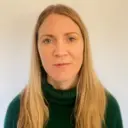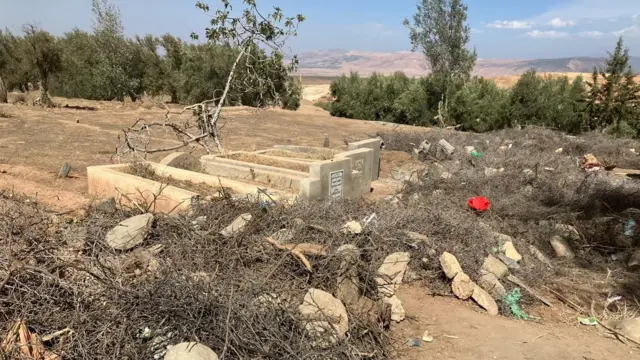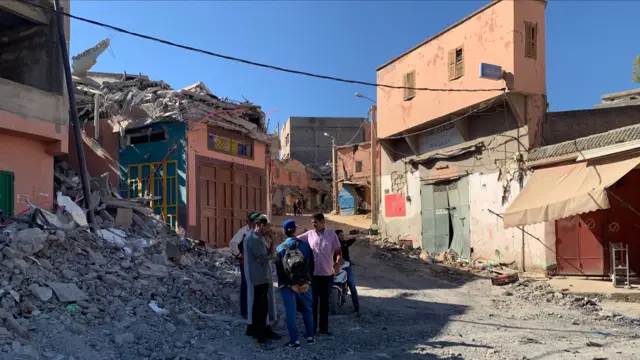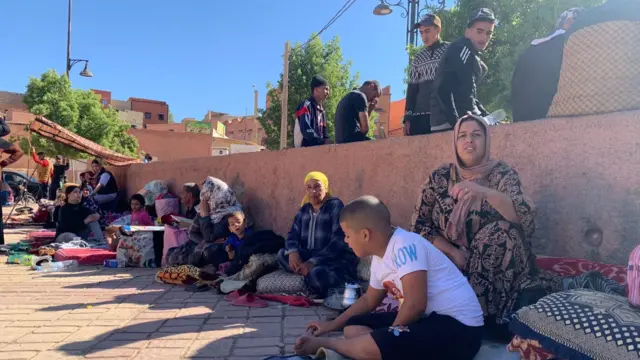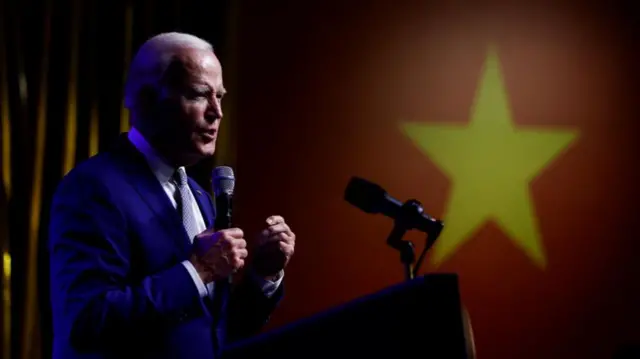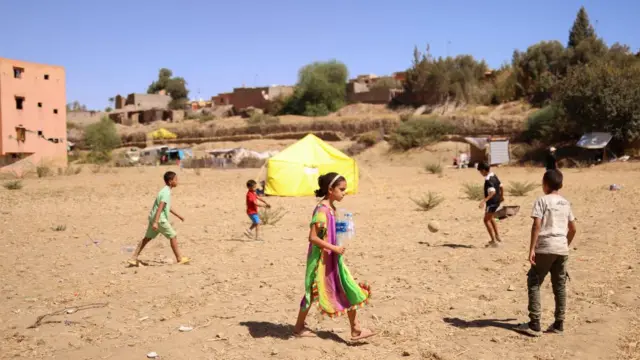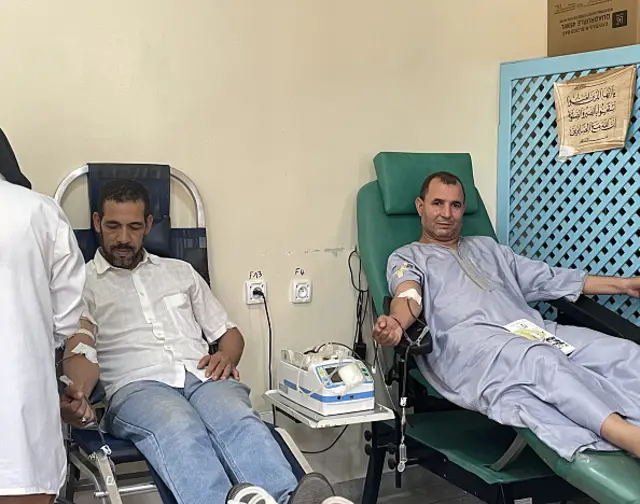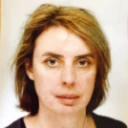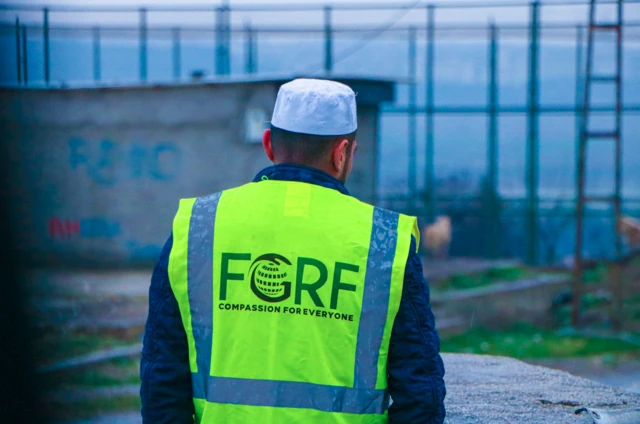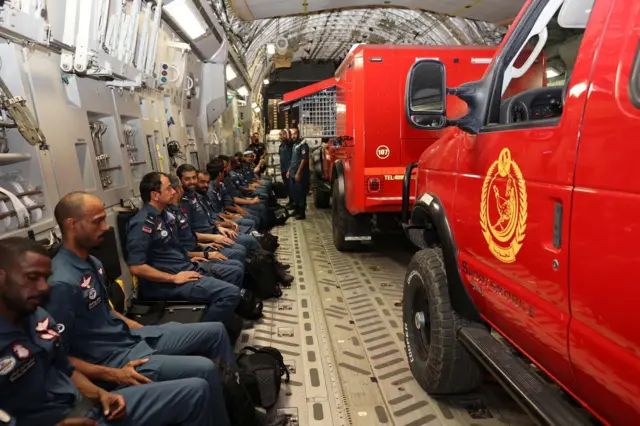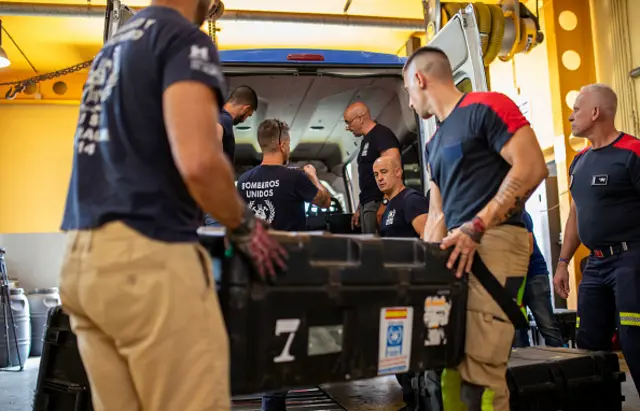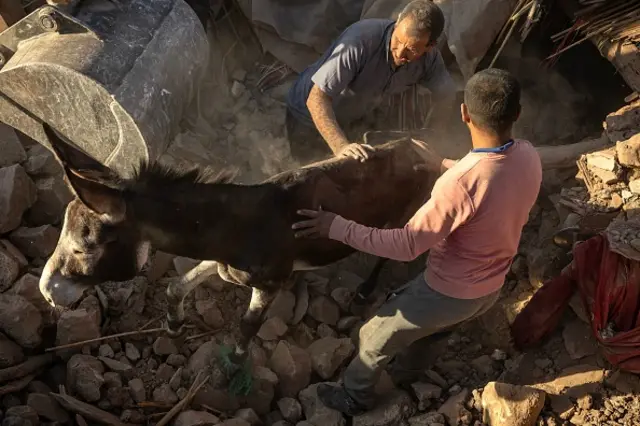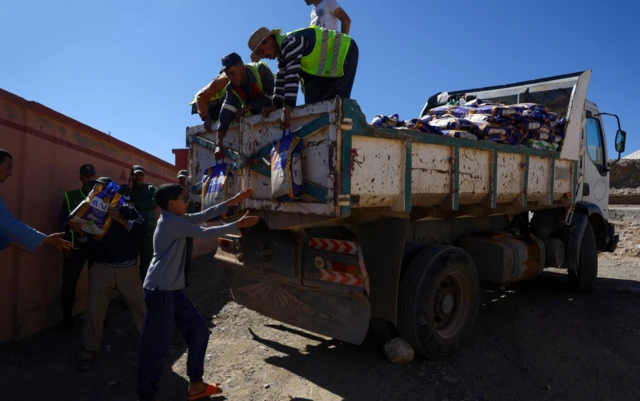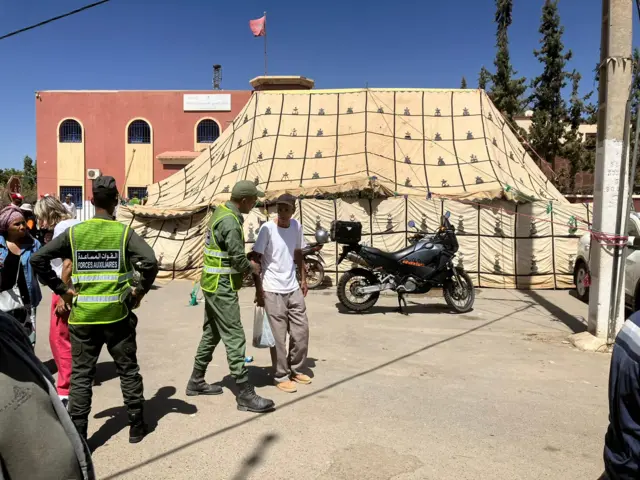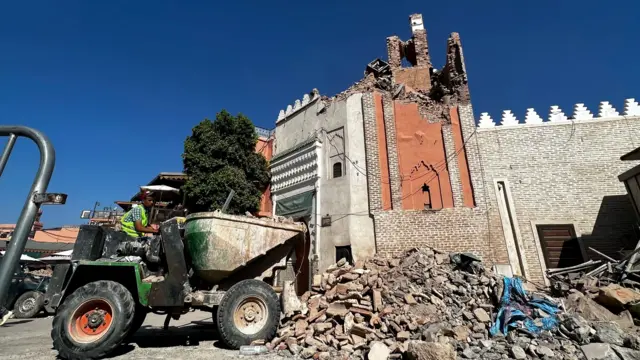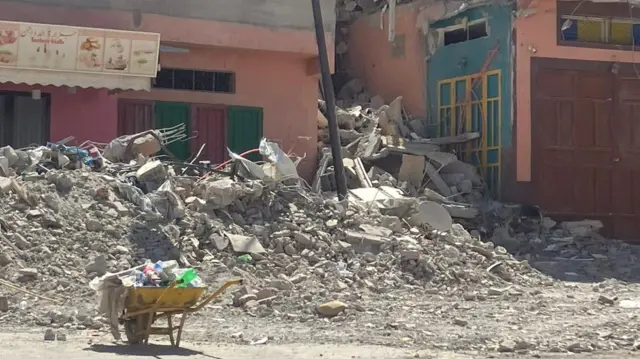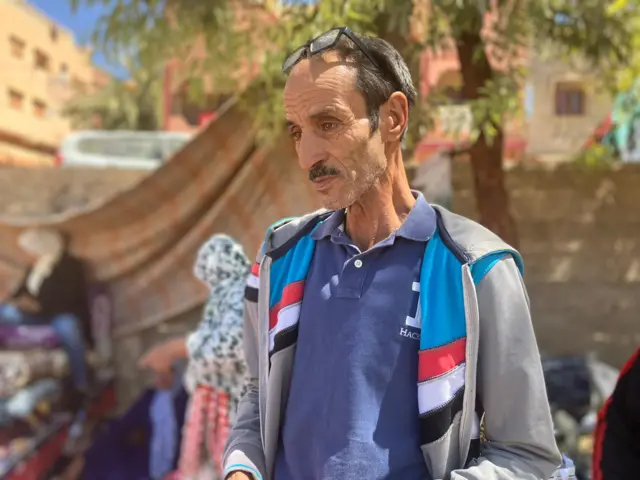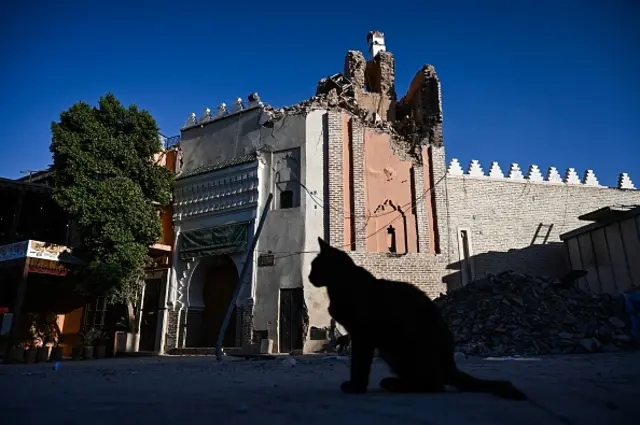A scramble to get aid to isolated communitiespublished at 18:53 BST 10 September 2023
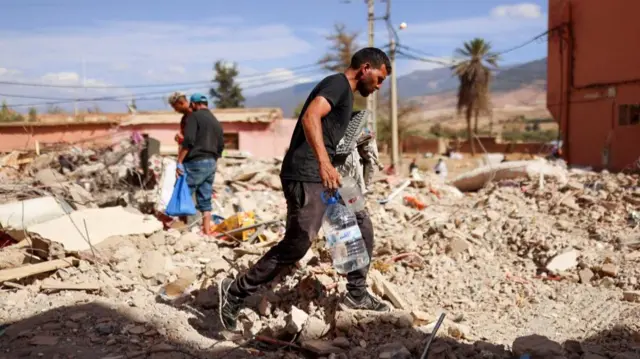 Image source, Reuters
Image source, ReutersWe'll be closing our live coverage of the ongoing aid efforts in Morocco shortly. Thanks for joining us.
Here's a quick roundup of the situation on the ground:
- The death toll from Friday's earthquake has risen to over 2,100, with 2,400 more injured
- Rescuers are scrambling to save people in isolated communities in the High Atlas mountains, with aid deliveries hampered by blocked roads
- Many people in devastated villages are reporting a lack of vital supplies, including of food, water and shelter
- Tents have been set up in some areas, while many people are responding to calls to donate blood
- But assistance is arriving in places, after the Moroccan army cleared a key road from Marrakesh to the mountains early in Sunday
- The historic city has also been badly hit by the earthquake, with some estimates putting the number of people affected in the Marrakesh area as high as 300,000
If you'd like to stay updated with the race to save people, the main news story is available here.
Our reporter Nick Beake has also visited a village almost entirely destroyed by the earthquake, and you can watch his report on the rescue efforts here.
The page today has been written by Ece Goksdef, Farouk Chothia, Adam Durbin, Laurence Peter and Frances Mao, and edited by Alexandra Fouché, Lauren Turner, James FitzGerald and Henri Astier.
